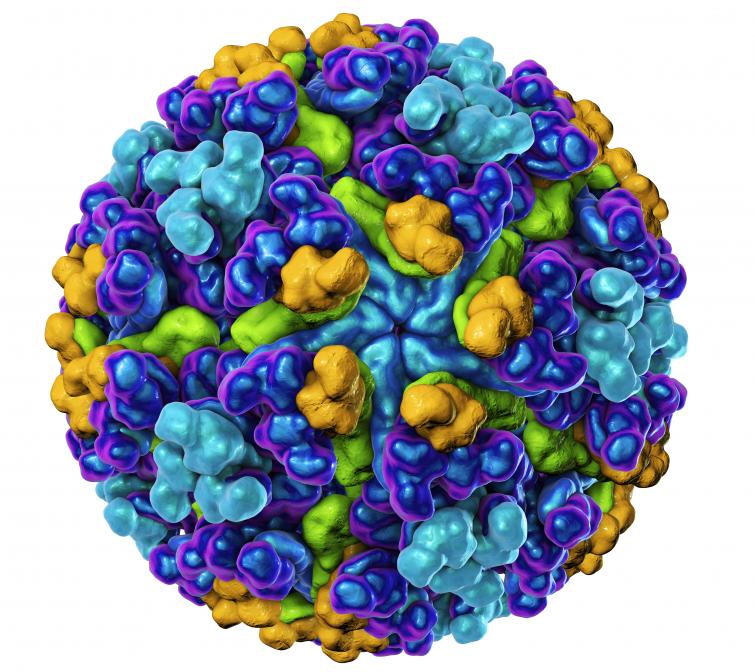
 Press
Press
Identified: A protein essential for chikungunya virus replication
Chikungunya is an infectious disease caused by a mosquito-borne virus transmitted to humans. First detected in Africa, the virus has been responsible for recent epidemics in the Americas, Asia and the Indian Ocean – particularly Reunion Island. Chikungunya is characterized by high fever and intense joint and muscle pain that can last for several months. The mechanisms of infection of human cells with the virus remain very poorly understood. Led by Ali Amara (Inserm, CNRS and Université de Paris) at the Institute of Research at Saint-Louis Hospital - AP-HP, in collaboration with Marc Lecuit’s team (Institut Pasteur, Inserm, Infectious and Tropical Diseases Department at Necker Enfants Malades Hospital - AP-HP and Université de Paris), researchers have now identified a protein that is crucial in order for the virus to replicate within its target cells. This research, published in the journal Nature, opens up therapeutic avenues in the fight against chikungunya.